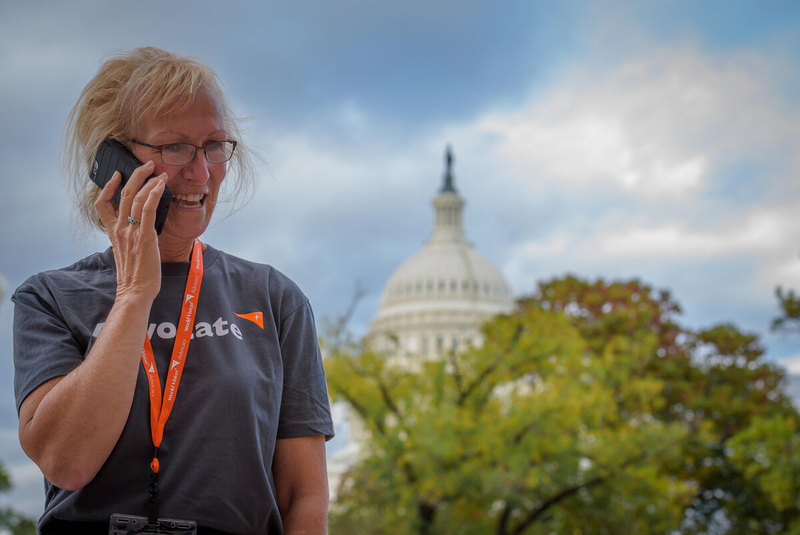If you could sum up the last few months in a single term, you might choose “uncertainty”: uncertainty of economic conditions, how long stay-at-home orders will last, if we’ll keep our jobs, and pretty much everything else.
The uncertainty of these times has exacerbated already heightened levels of partisanship and polarization in our nation, but as Christians, we have a responsibility to discuss the election and our political disagreements with civility. These necessary discussions require respect for those whose opinions differ from our own, recognizing that — no matter what happens — we can participate in the election in a way that reflects God’s love for us to others.
Our political opinions are influenced through almost every aspect of our lives: our upbringing, culture, our parents’ beliefs, socio-economic status, age, and of course, religion. If our faith in Christ is to be the foundation for our lives, then of course our political opinions would have their roots in our faith.
Engaging in public policy is one way we can love others and increase our reach and influence in society. Through engaging in public policy, we have the opportunity to engage our communities and the world in favor of “love and good deeds” (Hebrews 10:24, NIV). It’s vital to remember, however, that this is both a privilege and a responsibility.
How do we engage?
So how do we engage with civility? Civility in the election should go far beyond just being polite or courteous. There should be a genuine attitude of listening and hearing out the other side that is accompanied by intellectual curiosity. But what does that look like practically? I think it means focusing on the person you are engaged with — seeing them first as the person God created and loves, made in His image. It also means accepting people right where they are, and not basing the relationship on whether they look or think just like you. While polite is pleasant, it may not always be genuine or reflect the love of God.
What civility is not, is duplicitous. One of the most detrimental things we can do is to be disingenuous, or to just appear nice to others in public while privately speaking ill of those with the opposing viewpoint, engaging in personal negative rhetoric, or doubting their intentions.
We have strong examples of civility in practice throughout God’s word. Colossians 3:8 tells us that we “must also rid yourselves of all such things as these: anger, rage, malice, slander, and filthy language from your lips.” 1 Corinthians 13:2 says, “If I have the gift of prophecy and can fathom all mysteries and all knowledge, and if I have a faith that can move mountains, but do not have love, I am nothing.” James 3:5 continues this theme while focusing on speech, “Likewise, the tongue is a small part of the body, but it makes great boasts. Consider what a great forest is set on fire by a small spark.”
Civility for politicians
What else defines a civil approach to engaging in the upcoming election or around our policy differences specifically? As mentioned earlier, I think it starts with assuming the best intentions of those who have a different opinion or political point of view — again, seeing others as loved and created by God. This should extend to our politicians as well, who are so easy to idolize or vilify depending on our own opinion. We must see politicians and elected officials as people and God’s children, fallible and with their own needs, not just political vehicles to be loved or hated based on their most recent political position.
Christ gives us a perfect picture of civility in Philippians 2:5-8. Paul writes,
“In your relationships with one another, have the same mindset as Christ Jesus: Who, being in very nature God, did not consider equality with God something to be used to his own advantage; rather, he made himself nothing by taking the very nature of a servant, being made in human likeness. And being found in appearance as a man, he humbled himself by becoming obedient to death — even death on a cross!”
Keeping an attitude of civility in the election
We should also seek to humble ourselves and take the attitude of a servant. I don’t think this means that we should capitulate our own beliefs and simply defer to others, but rather voice our opinions in a loving way with an attitude of grace. It means being generous in our patience to hear the other side, and actively search for areas of common ground with those who we disagree with. In this attitude we can serve others and show the kind of love that Christ exemplified.
Of course, this attitude toward others can be difficult to maintain, especially when it comes to our most deeply held beliefs. But if we are going to genuinely engage with civility, we must love people as Christ loved us.
As we continue through these uncertain times, we can be a blessing to those around us by showing Christ’s love, especially to those the world generally expects us to not treat with such civility. In a time when our politics are marked by polarizing rhetoric, we can speak a different language that seeks to unify us in our differences rather than divide us into politically affiliated echo chambers.
Above all else, civility during elections comes from the acknowledgement that God is in control of all things. With this truth to comfort us in difficult times and during the election, let us commit to treating others as the children of God they are, with civility.
ACT NOW:
Send a prayer of encouragement to your government leaders.
Top photo: World Vision Volunteer Advocate in Washington, D.C. (©2019 World Vision/photo by Laura Reinhardt)


